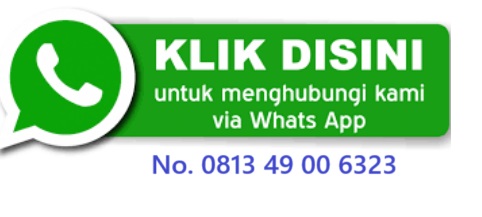Implementasi Metode Contextual Teaching and Learning (CTL) Pada Pembelajaran Al-Qur’an Hadist Siswa Kelas X-A MAN 3 Banyumas
Keywords:
Metode Pembelajaran, Contextual Teaching and Learning (CTL), Pembelajaran Al-Qur’an HaditsAbstract
Education is a guideline for every human development. The main problem is choosing a spesific direction and goal. In education, an approach is needed including curriculum renewal, quality of learning an the effectiveness of the learning methods used. Teaching and learning activities in the classroom need to be carried out as well as possible so that educational goals can be achieved. Seeing the low interest of students in studying the Qur’an and Hadith, an interesting and enjoyable learning method is needed. One of them is the Contextual Teaching and Learning (CTL) learning method. The study aims to describe the implementation of the Contextual Teaching and Learning (CTL) method in learning the Al-Qur’an Hadith of class X students of MAN 3 Banyumas. The research method used is field research with a qualitative descriptive approach. Data collected in this study through observation, interviews and documentation. Data analysis was carried out with the steps of data collection, data reduction and drawing conclusions. The result of the study showed that the implementation of the Contexual Teaching and Learning (CTL) method uses learning steps contained in the 5 (five) relavant Contexual Teaching and Learning (CTL) learning components. Including constructivism, modelling, inquiry (finding for yourself), questioning, learning community. Al-Qur'an Hadith learning activities in the application of the Contextual Teaching and Learning (CTL) method include students developing new knowledge that they already have, studying the material in the Al-Qur'an Hadith book, student involvement in discussion and question and answer activities, forming study groups, making sketches or models for learning needs, conducting learning reflections and teachers conducting objective evaluations of students
Downloads
References
Anwar, M. R. (2022). Pengaruh Model Pembelajaran Contextual Teaching and Learning (CTL) Terhadap Hasil Belajar Al-Qur'an Hadits. Tarbawy: Jurnal Pendidikan Islam, 9(1), 37-45.
Bariroh, A. M. (2022). Implementasi Model Pembelajaran Contextual Teaching and Learning pada Mata Pelajaran Al-Qur’ an Hadits untuk Meningkatkan Motivasi Belajar dan Prestasi Belajar Siswa Kelas IX MTs Al-Fatah Mojosari Mojokerto. SCHOLASTICA: Jurnal Pendidikan dan Kebudayaan, 4(2), 34-45.
Hanum, L. (2021). Pembelajaran Al-Qur'an Hadis Berbasis Kontekstual di MTs. Pendidikan Agama Islam Medan (Studi Kasus pada Pembelajaran Daring). Fitrah: Journal of Islamic Education, 2(1), 66-79.
Khasanah, A. F. A. (2023). Penerapan Model Pembelajaran Contextual Teaching and Learning (CTL) Dalam Meningkatkan Prestasi Belajar Siswa Pada Mata Pelajaran Al-Qur’an Hadist Kelas 7 MTs Darussalam Kedunggalar Ngawi (Doctoral dissertation, IAIN PONOROGO).
Kismatun, K. (2021). Contextual Teaching And Learning Dalam Pendidikan Agama Islam. Teacher: Jurnal Inovasi Karya Ilmiah Guru, 1(2), 123-133.
Mudrikah, S., Pahleviannur, M. R., Surur, M., Rahmah, N., Siahaan, M. N., Wahyuni, F. S., ... & Nurhayati, R. (2021). Perencanaan Pembelajaran di Sekolah: Teori dan Implementasi. Pradina pustaka.
Nika Maroya Putri, Pengaruh Model Pembelajaran Contextual Teaching and Learning (CTL) Terhadap Hasil Belajar Al-Qur’an Hadist Peserta Didik kelas VI MTs Miftahul Jannah Bandar Lampung, (Skripsi) : 4.
Ni'mah, M. A. (2023). Metode Contextual Teaching And Learning Dalam Pembelajaran Maharah Qira’ah: Metode Pembelajaran, Metode Contextual Teaching And Learning, Maharah Qira, ah. Revorma: Jurnal Pendidikan dan Pemikiran, 3(1), 26-41.
Rukajat, A. (2019). Pembelajaran contextual teaching and learning untuk meningkatkan mutu hasil pembelajaran. Pionir: Jurnal Pendidikan, 8(1).
Rustandi, J., & Anthoni, M. (2024). Metode Pembelajaran pada Mata Pelajaran Al Qur’an Hadits di Tingkat Madrasah Tsanawiyah. Jurnal Al-Mufidz: Jurnal Pendidikan Agama Islam, 1(2), 175-200.
Downloads
Published
How to Cite
Issue
Section
License
Copyright (c) 2025 Nindy Aprilliani

This work is licensed under a Creative Commons Attribution-NonCommercial-ShareAlike 4.0 International License.






